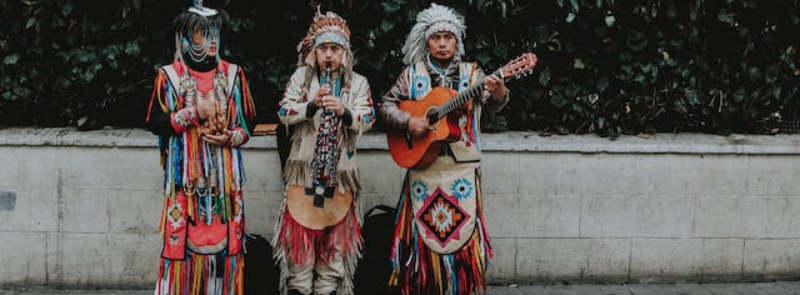
When It Occurs
Every Second Monday of October
Timeline
Days Passed (496)
# Hashtags
#IndigenousPeoplesDay #NativeAmericans
Indigenous Peoples' Day is indeed observed on the second Monday of October, celebrating and honoring the rich cultures, traditions, and histories of Native American peoples. It's a time to acknowledge their heritage and recognize the impacts of historical events on their communities.
History
- Origins: The idea of Indigenous Peoples' Day emerged in the late 20th century as a response to the celebration of Columbus Day, which many view as glorifying European colonization and its detrimental impact on indigenous peoples.
- First Observance: South Dakota was the first state to officially celebrate Indigenous Peoples' Day in 1989, calling it Native American Day.
- Expansion: Since then, numerous states, cities, and educational institutions across the United States have adopted Indigenous Peoples' Day, replacing or complementing Columbus Day.
Significance
Indigenous Peoples' Day serves several key purposes:
- Recognition: It acknowledges the resilience and contributions of indigenous communities.
- Education: It educates the public about the history and culture of Native Americans.
- Awareness: It raises awareness about the historical and current challenges faced by indigenous peoples, including issues related to land rights, sovereignty, and social justice.
Observances and Celebrations
-
Cultural Events:
- Traditional Ceremonies: Many communities hold traditional ceremonies, dances, and gatherings to honor their heritage.
- Powwows: These social gatherings celebrate Native American culture through dance, music, and art.
- Storytelling: Elders and community members share stories and oral histories to preserve and pass on cultural knowledge.
-
Educational Programs:
- School Curricula: Schools incorporate lessons about Native American history, culture, and contemporary issues.
- Workshops and Seminars: Educational institutions and organizations host workshops and seminars on indigenous topics.
-
Advocacy and Activism:
- Protests and Marches: Activists and advocates organize events to draw attention to indigenous rights and issues.
- Policy Discussions: Public discussions and forums focus on policy changes needed to support indigenous communities.
-
Art and Media:
- Exhibitions: Museums and galleries feature exhibitions showcasing indigenous art, history, and culture.
- Film Screenings: Documentaries and films about Native American experiences are screened and discussed.
States and Cities Celebrating Indigenous Peoples' Day
Many states and cities have officially replaced Columbus Day with Indigenous Peoples' Day. Some of these include:
- States: Alaska, Maine, Minnesota, New Mexico, Vermont, and Wisconsin.
- Cities: Los Angeles, San Francisco, Seattle, Denver, and Phoenix.
Impact and Legacy
The observance of Indigenous Peoples' Day has had a significant impact on raising awareness and fostering a more inclusive understanding of American history. It challenges the traditional narrative that centers European exploration and colonization and instead highlights the rich and diverse histories of Native American peoples.
Contemporary Issues Highlighted on Indigenous Peoples' Day
-
Land Rights and Sovereignty:
- Land Acknowledgment: Recognizing the traditional lands of indigenous peoples at public events and gatherings.
- Sovereignty Movements: Supporting the political and legal sovereignty of indigenous nations.
-
Cultural Preservation:
- Language Revitalization: Efforts to preserve and revitalize indigenous languages.
- Cultural Heritage Protection: Protecting sacred sites and cultural artifacts.
-
Social and Economic Justice:
- Health Disparities: Addressing health disparities and improving healthcare access for indigenous communities.
- Economic Opportunities: Promoting economic development and opportunities in indigenous communities.
-
Environmental Justice:
- Resource Protection: Advocating for the protection of natural resources and the environment.
- Climate Change: Addressing the disproportionate impact of climate change on indigenous lands and communities.
Conclusion
Indigenous Peoples' Day is a powerful reminder of the strength, resilience, and contributions of Native American communities. It offers an opportunity to educate, reflect, and advocate for a more just and inclusive society. As more states and cities adopt this observance, it continues to foster greater recognition and respect for the histories and cultures of indigenous peoples.


